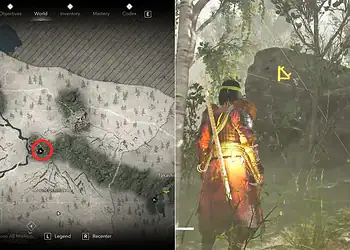The Common Law Admission Test (CLAT) 2025, a gateway to India’s prestigious National Law Universities (NLUs), has sparked widespread disappointment among aspirants. From errors in the provisional answer key to high objection fees and deviations from the syllabus, students and coaching centers have raised serious concerns about the examination process. Here’s a detailed look at the issues surrounding CLAT 2025 and what it means for aspirants.
Table of Contents
CLAT 2025: High Costs and Objection Fees: A Burden on Aspirants
One of the most significant grievances among CLAT aspirants is the high cost associated with the exam. The registration fee for both undergraduate (UG) and postgraduate (PG) exams is already one of the highest among competitive exams in India. Adding to this financial burden, the Consortium of National Law Universities (NLUs) has introduced a ₹1,000 fee per objection for challenging errors in the provisional answer key.
While the Consortium has assured that the objection fee will be refunded if the objection is found valid, many students feel this policy is unfair. The high upfront cost discourages students from raising valid concerns, especially when multiple discrepancies are identified. For many aspirants, the financial strain outweighs the potential benefit of filing objections.

Errors in the Provisional Answer Key
The provisional answer key, which serves as the basis for evaluating performance and rankings, has come under scrutiny for its inaccuracies. Multiple coaching institutes and students have pointed out discrepancies in the answer key, raising questions about its reliability.
For instance, Harshvardhan Tripathi and Sagar Joshi of Law Prep Tutorial identified 12 errors in the answer key. They also noted that several questions were not aligned with the syllabus or the sample papers released by the Consortium. This inconsistency has left students frustrated, as months of preparation seem to have been undermined by poorly framed questions and vague options.
The postgraduate (PG) paper, in particular, was criticized for being excessively lengthy, with 24 reading passages. Chandrika Bose, Chief Learning Officer of Rostrum Legal, remarked that the CLAT PG answer key contained 10 to 12 mistakes, with some questions having more than one correct option. The lack of sample papers for PG aspirants further compounded the issue, leaving students unprepared for the deviations in the test pattern.
Syllabus and Pattern Deviations: A Major Setback
Another major concern raised by students is the deviation from the prescribed syllabus and test pattern. The General Knowledge section, for example, included subjective, passage-based questions instead of focusing on current affairs, as expected. This shift caught many students off guard, negating months of focused preparation.
Additionally, the syllabus explicitly stated that no prior legal knowledge was required. However, students reported that several questions demanded a level of legal understanding that contradicted this guideline. Such inconsistencies have left aspirants feeling misled and unprepared.

Lack of Transparency in the Objection Process
The Consortium’s handling of the objection process has also drawn criticism. While students were allowed to raise objections to the provisional answer key, the process was limited to a specific window and required payment of the objection fee. Once the objection window closed, no further mechanism was provided to challenge the final answer key.
This lack of transparency has been deemed unfair by many students, who feel that their concerns have not been adequately addressed. The Consortium’s automated response to queries, stating that objections raised via email or phone would not be considered, has only added to the frustration.
What’s Next for CLAT 2025?
According to the CLAT 2025 calendar, the final answer key will be published on December 9, followed by the results on December 10. However, with no mechanism to challenge the final answer key, students are left with little recourse if discrepancies persist.
The issues surrounding CLAT 2025 highlight the need for greater accountability and transparency in the examination process. Aspirants invest significant time, effort, and money into preparing for this highly competitive exam, and they deserve a fair and reliable evaluation system.
Read more: Sarkari Exam Alert: PGCIL Officer Trainee Recruitment 2024 Complete Guide
FAQs
What are the main issues with CLAT 2025?
The main issues with CLAT 2025 include errors in the provisional answer key, high objection fees, deviations from the syllabus and test pattern, and a lack of transparency in the objection process. These concerns have left many students frustrated and questioning the fairness of the examination.
Can students challenge the final answer key for CLAT 2025?
No, the Consortium of National Law Universities has not provided a mechanism to challenge the final answer key for CLAT 2025. Students were only allowed to raise objections to the provisional answer key during a specific window, and no further objections will be considered.








